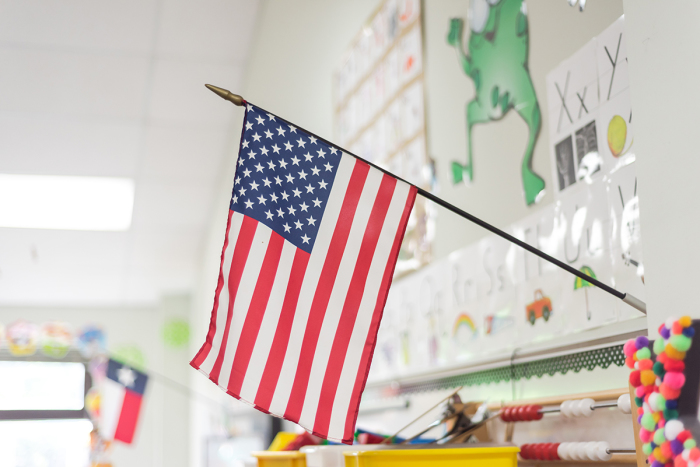Democratic-linked South Asian advocacy group warns move ‘undermines religious freedom’
By Ian M. Giatti, Christian Post Reporter Friday, November 22, 2024

The Texas State Board of Education voted Friday to approve a new curriculum that introduces optional Bible-based teachings in elementary schools, a move which aligns the Lone Star state with other Republican-led states pushing for greater religious presence in public classrooms.
The curriculum, which is optional for districts to adopt, aims to infuse Bible teachings into various subjects, particularly reading and language arts, for students in kindergarten through fifth grade. While districts can choose whether to implement the lessons, those that opt to do so will receive additional state funding.
Friday’s final vote follows a preliminary vote earlier this week that saw the board’s 15 members narrowly endorse Bluebonnet Learning, a curriculum proposed earlier this year by the Texas Education Agency (TEA) for use in K-5 public school classrooms.
Notably, three Republicans, including board member Pam Little (R-Fairview), a self-descri bed Christian conservative , voted with the board’s four Democratic members against the curriculum. Little was reelected to another two-year term on the Republican-led panel earlier this month.
Created by the state’s Education Agency following legislation passed in 2023 by the Republican-controlled state legislature, the curriculum materials were made publicly available this spring, and Texas officials are preparing for their implementation in the coming school year.
The materials could be rolled out as early as next school year.
Gov. Greg Abbott, who has voiced his support for the curriculum, praised the initiative as a way to enrich students’ understanding of American history and culture. Supporters argue that biblical references are deeply embedded in the nation’s foundation and that incorporating them will enhance students’ education, helping them to better understand literature, history, and even modern-day expressions derived from the Bible.
Keisha Russell, senior counsel for religious advocacy group First Liberty Institute, lauded the board’s vote.
“Supreme Court precedent has repeatedly confirmed that the Bible is appropriate for instruction in history, literature, poetry, music, art, government, social customs, values, and behavioral sciences,” she said. “We fully support the Texas State Board of Education’s decision.”
However, the decision has sparked significant opposition. Critics argue that the curriculum primarily focuses on Christian teachings and could alienate students from diverse religious or non-religious backgrounds.
More than 100 individuals testified during a public meeting earlier this week in Austin, with emotional arguments from both sides. Supporters highlighted the Bible’s historical importance, while opponents warned of the risks of religious indoctrination in public schools.
Among the groups that have voiced opposition to the curriculum is South Asian Americans for Voter Empowerment Texas (SAAVETX), which has argued the changes “risk transforming our public schools into platforms for promoting a single religious viewpoint, undermining the diversity that makes Texas strong.”
According to SAAVETX’s advocacy platform, the inclusion of Bible-related curriculum “undermines religious freedom and ignores Texas’ cultural diversity.” The group offers supporters a sample letter to send to lawmakers which states the curriculum “overwhelmingly focuses on Christianity and does not adequately address the history and contributions of other religious groups, including South Asians.”
SAAVETX, which represents Hindus, Sikhs, Muslims and other South Asian faith traditions, also offers a guide on “navigating post-election trauma for South Asians” following Donald Trump’s victory on Nov. 5. The group also links to ActBlue, the Democratic donor platform.
While acknowledging freedom of religion as a key component of a “well-rounded education, SAAVETX also argues that “no curriculum should impose religious beliefs or promote a single faith’s teachings.”
CP reached out to SAAVETX for comment Friday following the board’s final vote. This story will be updated if a response is received.
Texas is home to the second-largest Indian-American population in the U.S., with Hindus alone numbering around 740,000 statewide, representing approximately 4% of the state population.
Despite growing religious demographic shifts in Texas, the new statewide curriculum looks to endure, at least in the near term, following similar moves in other Republican-led states.
In Oklahoma, the state’s education chief ordered a Bible to be placed in every classroom, and in Louisiana, efforts are underway to post the Ten Commandments in all public schools starting next year.
